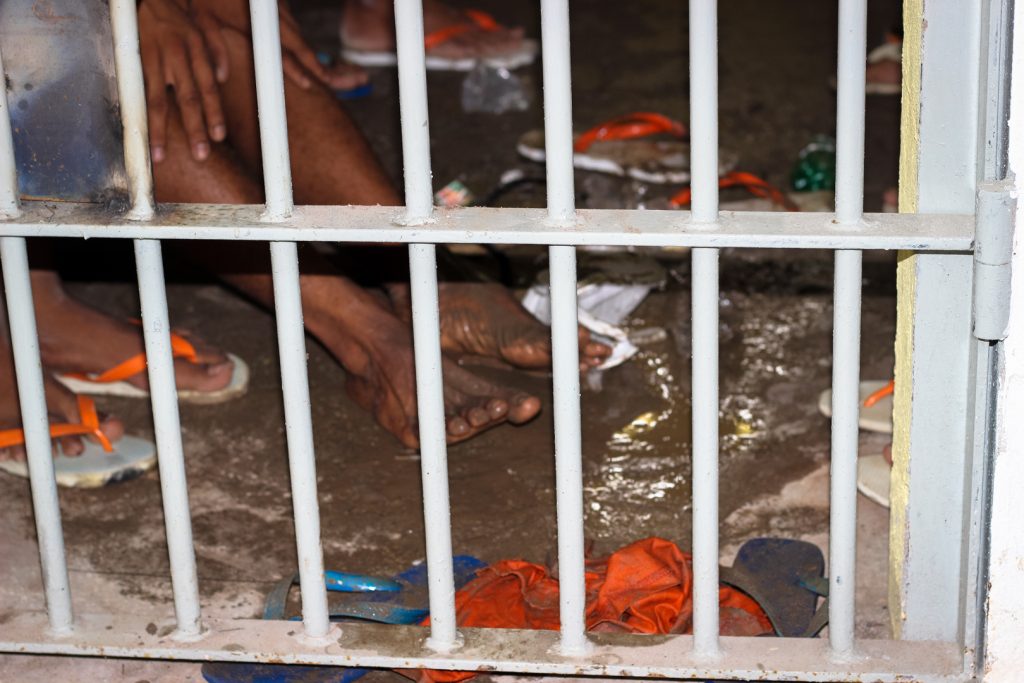Criminal Justice Network calls for measures against COVID-19 in prisons
Situation should be addressed as an “Unconstitutional State of Affairs” – a prison system in structural collapse and reproducer of cruel practices


The alarming growth in new cases of coronavirus infection around the world is exposing the intensity of the social, racial and economic vulnerabilities in Brazil. In the country’s prisons, the situation is worsening exponentially. In overcrowded cells without access to personal and environmental hygiene, the prison population and young offenders in youth detention centers do not receive adequate healthcare and are known to have severe conditions, making them a high-risk group in the escalation of coronavirus in the country.
Brazil currently has the world’s 3rd largest prison population, with more than 758,000 people deprived of liberty and it is well known that a large number of these people are HIV-positive or have tuberculosis, pneumonia, diabetes, hypertension or other pre-existing illnesses. Youth detention centers across Brazil are overcrowded and inflict degrading treatment on the adolescents, a social group that ought to be given absolute priority, according to the Federal Constitution.
Read more
As noted by Pastoral Carcerária, the Catholic Church’s prisoner outreach service, the spread of the virus would be disastrous, especially since people in prison have low immunity on account of the precarious and inhumane conditions in the facilities. The hostile environment also affects the health of the prison staff, so measures to contain the virus by reducing the prison population and young detainees would, therefore, lower the infection rates of these workers.
Both inside and outside prison, the black population will be directly impacted by the spread of COVID-19 since they are subject to poor housing and basic sanitation conditions and insufficient public health services. Preventions such as washing your hands frequently and using hygiene products, which are more expensive in these situations, demonstrate the profound racial and class inequality in Brazil.
On March 16, riots occurred in several prisons in the state of São Paulo and one of the cited causes were the restrictions on temporary release due to COVID-19. Meanwhile, states like Minas Gerais, Pernambuco and Bahia have taken measures to reduce the prison population, such as giving alternatives to prison sentences and reviewing pre-trial detention, the exact opposite of keeping prisoners incarcerated. Moreover, the National Justice Council has published a Resolution on the subject that will serve as a basis for decarceration decisions and that guarantees the rights of prisoners (CNJ Recommendation 62/20).
The situation that is unfolding must be solved with strategic measures, since an increase in violence does not benefit anyone – not society outside prisons, not security staff or prison guards more specifically, nor the prison population and their families. In this regard, initiatives that imply setbacks should not be encouraged, such as the proposal to stage hearings by video conferencing, in particular pre-trial custody hearings, whose main purpose is to determine violence and abuse of detainees at the time of their arrest.
According to the Criminal Justice Network, the situation should be handled as an “Unconstitutional State of Affairs” – a prison system in structural collapse and a reproducer of cruel practices – with a view to reducing the prison population and paying special attention to the youth detention system, with the immediate decarceration, among others, of people with pre-existing illnesses, people over 60, mothers and guardians of children under 12, pregnant women, breastfeeding mothers (as provided for in the Legal Framework for Early Childhood), people accused of non-violent crimes, including drug trafficking, and determining the substitution of imprisonment with rights-restrictive sentences for people sentenced to up to 4 years, substituting imprisonment in a semi-open or open facility with house arrest, suspending the validity of arrest warrants for the start of prison sentences until all appeals have been exhausted, and substituting pre-trial detention with other alternatives in order to contain the spread of the virus.
Criminal Justice Network






